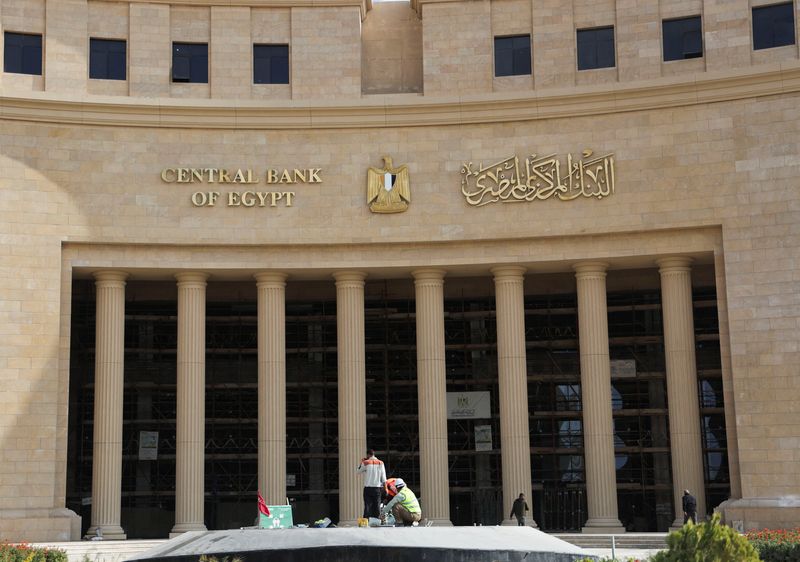CAIRO (Reuters) - The Central Bank of Egypt (CBE) is likely to leave its overnight interest rates fixed at a policy meeting on Thursday, even though economic reforms are expected in the weeks following President Abdel Fattah al-Sisi's re-election.
The National Election Authority announced on Monday that Sisi had won 89.6% of the vote for his third, six-year term in an election that saw no serious challengers.
Many analysts believe Egypt will wait until January, well after the Dec. 10-12 vote, before hiking interest rates or devaluing the currency.
The median forecast in a poll of 14 analysts is for the CBE to hold its deposit rate steady at 19.25% and lending rate at 20.25% when its regular monetary policy committee (MPC) meets. Six analysts expected a hike of between 100 and 300 basis points (bps).
"I don't see much to gain from a hike at this point - on a sequential basis inflation is already coming down, and the weak GDP and PMI data tell you there's no need to hike rates to curb demand," said Simon Williams of HSBC.
"I do see policy tightening, but only in tandem with FX adjustment and fresh support from the IMF and others."
Reluctant to allow changes, the CBE has kept the Egyptian pound fixed at 30.95 to the dollar since March and last raised interest rates by 100 basis points in September. The pound has since fallen to 50 to the dollar on the black market.
Some analysts, however, saw the CBE potentially moving before January.
"We envisage that the pound is devalued by more than 20% to 40 to the dollar and interest rates are hiked by 300 bps, to 22.25%," said James Swanston of Capital Economics.
"Even if all of this isn't delivered next week, a change in approach to macro policy will be needed soon and the MPC meeting gives an opportunity for officials to at least provide more guidance on the policy path," Swanston said.
Egypt agreed in a $3 billion financial package with the International Monetary Fund (IMF) a year ago to let its currency float freely and to speed the sale of state assets.

Progress on both counts has been slow, prompting the IMF to delay disbursements.
But since Israel went to war in neighbouring Gaza in October, multilateral lenders appear to have softened their tone. The IMF said this month it had begun talks with Egypt on additional financing as part of its current program.